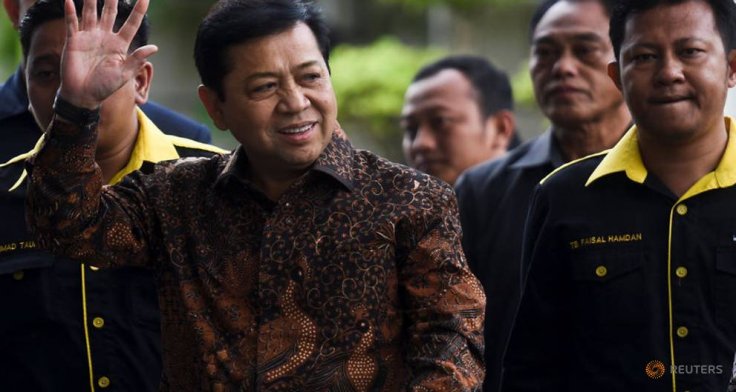Indonesia's President Joko Widodo (Jokowi) inaugurated new chiefs and supervisory board of the Corruption Eradication Commission (KPK) at the Presidential Palace on December 20, amid questions whether the brand new KPK will be more effective in combating corruption.
The controversial Law No.19/2019 on the KPK stipulates the existence of the supervisory board, aimed at supervising the implementation of the KPK duties and authorities and granting permission for the raid, seizures, and wiretapping.
The supervisory body consists of five members, former Supreme Court (MA) judge Artijo Alkotsar, judge Albertina Ho, political expert Sjamsuddin Harris, Election Organization Ethics Council (DKPP) chairman Harjono, led by former KPK commissioner Tumpak Panggabean.
While the KPK new chiefs are high-ranked police officer Firli Bahuri, Dean of Law Faculty at Jember University Nurul Ghufron, judge Nawai Pomolango, advocate Lili Pintauli Siregar, and Alexander Marwata, who was former KPK deputy from 2015 to 2019.
The controversy of the new KPK law and supervisory body

Last September, university students, and activists across Indonesia held mass rallies protesting the revised draft of the KPK law. They raised concerns that some of the articles in the document would curtail the authority of the KPK.
For example, one of the articles says that the KPK is allowed to stop the investigation of a graft case if the prosecution is not complete in two years, contradicting the Constitutional Court Decree that bans the KPK to issue an investigation termination warrant (SP3).
Anti-corruption activists believe that it will weaken the anti-graft agency
Anti-corruption activists see the establishment of the supervisory body in the KPK stipulated in the new bill as an effort to weaken the anti-graft agency, given that the supervisory board is entitled to give permissions for wiretapping and searches.
Legal practitioner Kapitra Ampera claimed that the role of the supervisory board is to guarantee the anti-graft agency's independence, given that the KPK is prone to political intervention.
As the president appoints the members of the supervisory body, it is feared that the board will curb the KPK's authority in upholding the law. Despite the nationwide protest and the judicial review lodged by students and anti-corruption activists, the parliament passed the bill.
What to expect from new KPK and supervisory agency
The ICW raised its pessimism over the new KPK leaders and its supervising body, given that the controversy surrounding the selection of the new chiefs. One of the new leaders allegedly has violated the code of ethics by meeting a person implicated in the case the KPK was investigating.
"ICW opposes the whole concept of the supervisory board as stated in the new KPK bill," said the ICW researcher Kurnia Ramadhana in a statement Kontan quoted.
Kurnia also pushed the president to issue a government regulation in lieu of law (Perppu) to revoke the already-enacted KPK law. However, the possibility for the Perppu is slim, given the judicial review at the Constitutional Court is still ongoing. Outgoing KPK leaders hope that their successors will bring a better future for the embattled anti-graft body, including plans to continue investigations of unfinished graft case.
"We see that the new law needs some adjustments. We hope the new KPK commissioners and the KPK supervisory board will work together in harmony to combat corruption," said former KPK head Agus Rahardjo as Tribunnews quoted.









